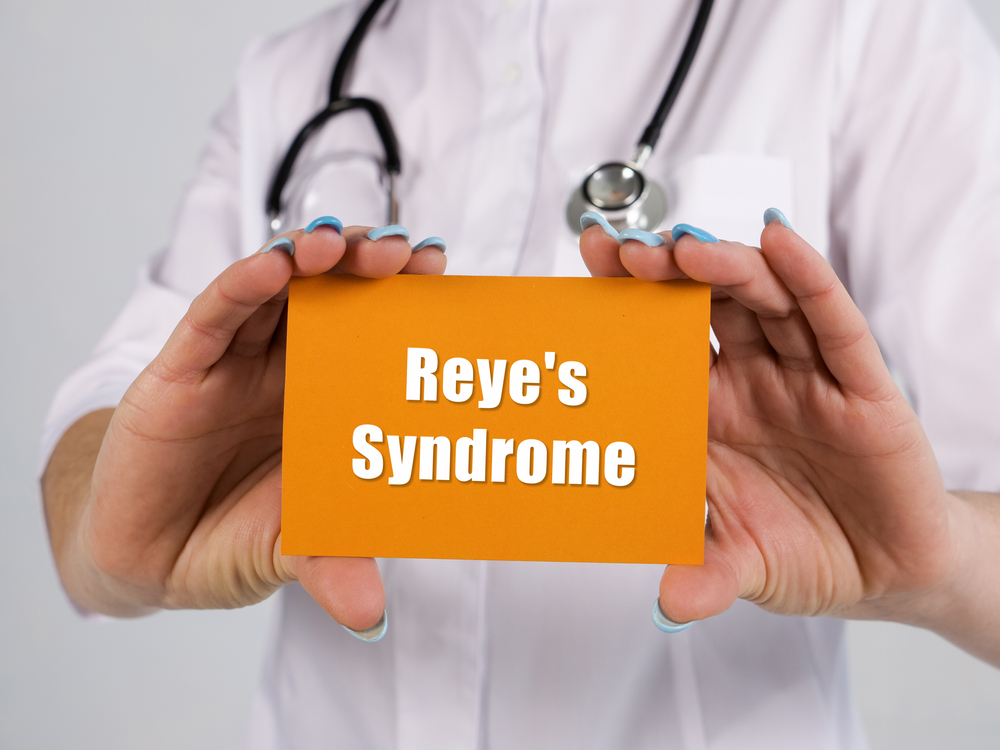Reye's Syndrome Awareness Month

Reye's syndrome is a rare yet dangerous medical condition mainly affecting teenagers and children. This disease affects children the most when they are recovering from another viral infection like flu or chickenpox. The major signs of this condition are severe internal swellings in the liver and the brain.
Specific emergency symptoms like brain seizures, confusion, convulsions, and loss of consciousness require medical attention and should be treated immediately. In some instances, Reye's syndrome can be lethal for children. But if treated at an early stage, it can be cured to a considerable extent. However, people consider aspirin a quick remedy. Doctors suggest that children under the age of three should never be consumed when the child suffers from chickenpox or flu. One of the main triggering factors for Reye's syndrome is aspirin usage during flu.
In order to raise awareness among the public about Reye's syndrome, September is observed as Reye's syndrome awareness month. This initiative was first taken by NSRF or National Reye's Syndrome Foundation to help the people affected by it and to raise awareness, among others. Since the declaration of September as the month of Reye's syndrome awareness, NSRF has released various resources and content to help people and educate them about this lesser-known disease.
Although aspirin has shown signs of controlling the symptoms of Reye's syndrome, over the years, many countries have reported negative actions of aspirin on this disease.
Now that we know when Reye's syndrome awareness month is observed let us see the symptoms, causes, and preventions.
Symptoms
When a child suffers from Reye's syndrome, their blood sugar level drops significantly, causing the levels of ammonia and acid to rise in the blood. This results in liver malfunctioning and accumulation of fats on it. The fat also gets deposited on the brain resulting in its swelling. As a result of the swelling, even the brain starts malfunctioning causing the child to lose consciousness and have severe and deadly convulsions.
Usually, it has been noticed that the direct symptoms of Reye's syndrome start three to six days after the child has caught flu or chickenpox. Reye's syndrome can also affect children who have caught a major cold.
Signs for Children Under 2 Years
Signs of Reye's syndrome for children under the age of 2 years are:
- Severe diarrhoea
- Abnormally high breathing rate
Signs for Above 2 Years and Teenagers
Here are some common signs noticed in children above two years and teenagers when they are affected by Reye's syndrome:
- Constant vomiting
- Constant lethargy and nauseousness
Additional Signs of Reye's Syndrome
A child may exhibit some additional yet common signs after attracting Reye's syndrome.
- Irritated and aggressive behaviour
- Confusion and hallucination
- Weakness or temporary paralysis in the limbs
- Brain and physical seizures
- Constant lethargy and sleepiness
- Sudden loss of consciousness
All these signs need emergency treatment, or they can turn out to be deadly.
Medical Help
You should immediately consult a doctor when you see any of the following problems in your child:
- Has sudden convulsions or seizures
- Lays unconscious more often
- Vomits repeatedly
- Unusual sleepiness
Causes
Over years of research, the exact cause of Reye's syndrome has not been found yet. However, doctors say that it results from several underlying health issues among children and teenagers. Aspirin is found to be one of the significant triggering causes of this health condition when consumed uncontrollably during pain and fever.
Moreover, underlying fatty acid oxidation disorder has also been found to be a leading cause of Reye's syndrome among children and teenagers. It is yet another health disorder where the body cannot decompose the fatty acids since the required enzymes are missing, disrupting the metabolism rate.
MCAD or medium-chain acyl-CoA dehydrogenase deficiency is another cause of Reye's syndrome. This is a condition where the underlying metabolic disorders are masked under the fever-causing viruses.
Prevention
Although global health institutions have given a green signal towards the usage of aspirin to children above the age of three and teenagers, it should not be consumed when suffering from severe chickenpox or flu. Any sort of medication containing even a bit of aspirin, like acetylsalicylic acid, acetylsalicylate, salicylic acid, and salicylate, should be avoided in such cases.
Many hospitals and maternity care centers screen newborn babies for chronic fatty acid issues and determine if the child is exposed to any symptoms of Reye's syndrome. Doctors specifically prescribe not to take aspirin if any child suffers from fatty acid oxidation disorder. Some effective alternatives to aspirin to treat pain and fever are acetaminophen in Tylenol and ibuprofen in Advil.
However, there is an exception when it comes to aspirin treatment. Children suffering from chronic diseases like Kawasaki disease need constant aspirin treatment. In that case, all the vaccines should be current, the doctor should treat the child, and other safety measures should be followed.
Reye's Syndrome Awareness Month
As mentioned earlier, September is the Reye's syndrome awareness month declared by NSRF or National Reye's Syndrome Foundation. Although a rare disease, it can be pretty lethal if not treated properly. In many third-world nations, proper healthcare is not available. Hence, with the help of global health institutions, National Reye's Syndrome Foundation is raising awareness around this deadly disease. They also provide effective content on ways to prevent and treat this disease alongside options for effective healthcare.
The risk factor involved in this disease is quite dangerous, while the disease remains quite mysterious since the direct cause or complete treatment is not yet found. Moreover, this is quite a lesser-known disease. Hence treatment or even basic awareness of Reye's syndrome is pretty limited. Recent studies have found that aspirin consumption is a significant cause of attractive Reye's syndrome. The use of the most common form of aspirin, salicylic acid, is effectively restricted in many countries due to its side effects on humans and specifically on children.






